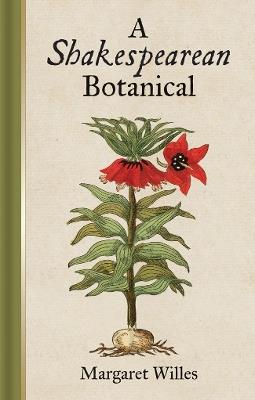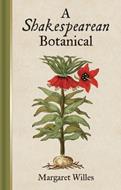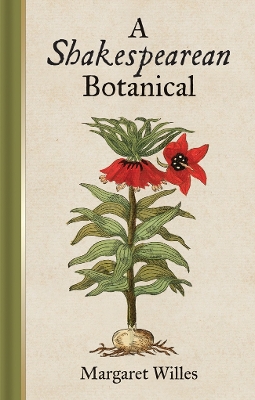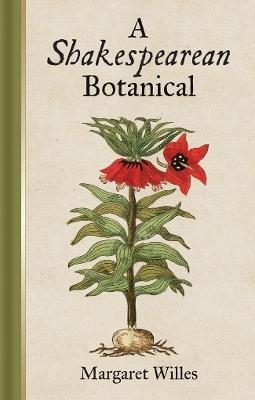A Shakespearean Botanical
When Falstaff calls upon the sky to rain potatoes in The Merry Wives of Windsor, he is highlighting the late sixteenth-century belief that the exotic vegetable, recently introduced to England from the Americas, was an aphrodisiac. In Romeo and Juliet, Lady Capulet calls for quinces to make pies for the marriage feast of her daughter. This fruit was traditionally connected with weddings and fertility, as echoed by John Gerard in his herbal where he also explained that eating quinces would ‘bring forth wise children, and of good understanding’. Taking fifty quotations centring on flowers, herbs, fruit and vegetables, Margaret Willes gives these botanical references their social context to provide an intriguing and original focus on daily life in Tudor and Jacobean England, looking in particular at medicine, cookery, gardening and folklore traditions. Exquisitely illustrated with unique hand-painted engravings from the Bodleian Library’s copy of John Gerard’s herbal of 1597, this book marries the beauty of Shakespeare’s lines with charming contemporary renderings of the plants he described so vividly.
-
Autore:
-
Editore:
-
Anno:2015
-
Rilegatura:Hardback
-
Pagine:208 p.
Le schede prodotto sono aggiornate in conformità al Regolamento UE 988/2023. Laddove ci fossero taluni dati non disponibili per ragioni indipendenti da Feltrinelli, vi informiamo che stiamo compiendo ogni ragionevole sforzo per inserirli. Vi invitiamo a controllare periodicamente il sito www.lafeltrinelli.it per eventuali novità e aggiornamenti.
Per le vendite di prodotti da terze parti, ciascun venditore si assume la piena e diretta responsabilità per la commercializzazione del prodotto e per la sua conformità al Regolamento UE 988/2023, nonché alle normative nazionali ed europee vigenti.
Per informazioni sulla sicurezza dei prodotti, contattare productsafety@feltrinelli.it



